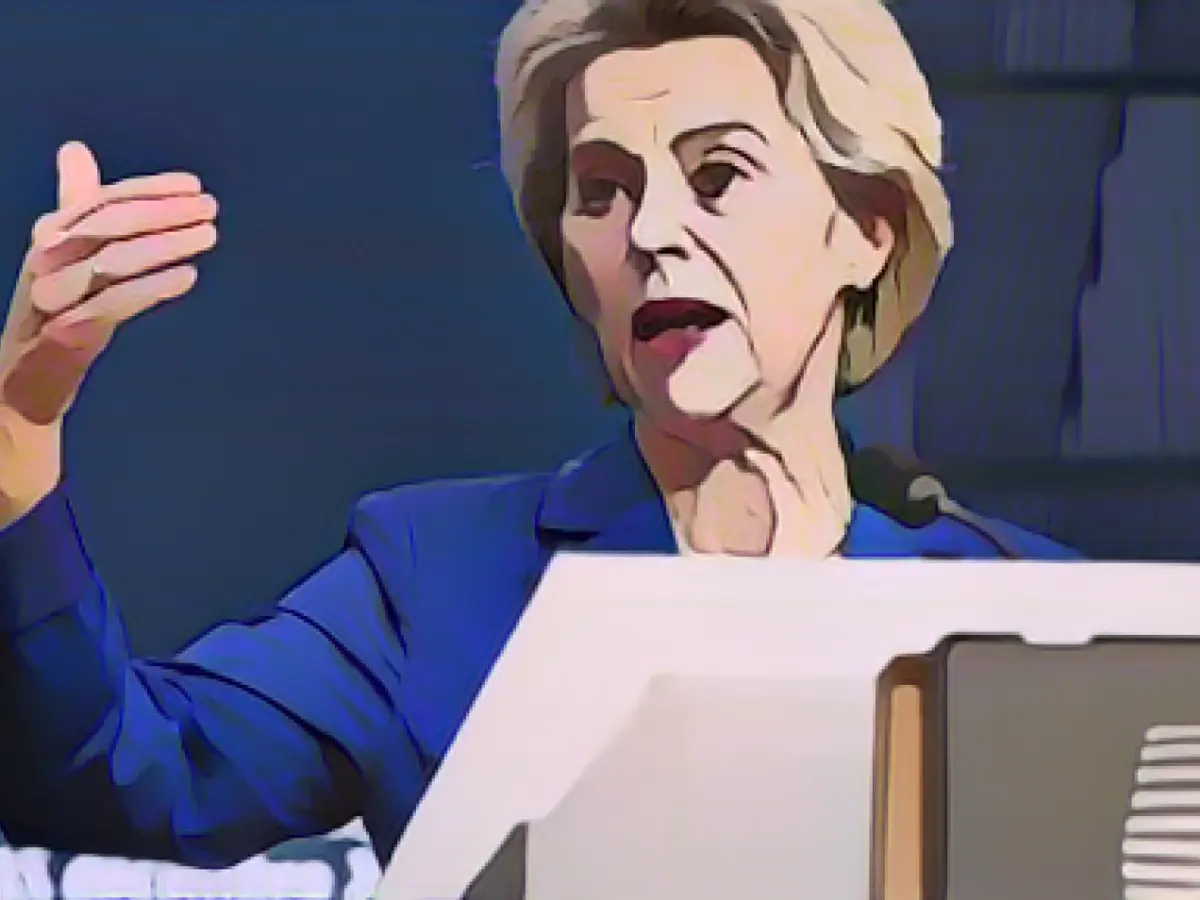Von der Leyen promises solution for blocked Ukraine aid
"We are, of course, working very hard to achieve a result where there is agreement among the 27 member states," von der Leyen continued. "But I think that it is now also necessary to work on possible alternatives in order to have an operational solution in the event that an agreement with 27 is not possible unanimously."
Hungary's Prime Minister Viktor Orban had not given up his opposition to the release of the 50 billion euros in aid at the summit of the 27 heads of state and government. The negotiations were therefore broken off on Friday night. Another summit is to be held at the beginning of next year.
Orban had initially suggested that the Ukraine aid should not be included in the EU budget, but this did not meet with much approval from the other 26 summit participants. However, resistance to this is crumbling. "It is possible for 26 member states to make the money available on a bilateral basis, not via the multi-year budget," said Ireland's Prime Minister Leo Varadkar after the summit. However, this would not be his preferred solution.
EU Council President Charles Michel was "extremely confident and optimistic that we will be able to fulfill our promises to support Ukraine with financial resources". German Chancellor Olaf Scholz (SPD) also expressed his "confidence that we will reach an agreement in January". Scholz rejected Orban's demand to release the EU funds frozen due to rule of law violations in Hungary in return for giving up his veto. This "cannot be mixed up".
Read also:
- This will change in December
- German activists speak out in Dubai on suffering in Israel and the Gaza Strip
- Despite UN vote: fighting between Israel and Hamas in the Gaza Strip continues
- Nuclear fusion - hype or solution to energy problems?
- Despite the opposition from Hungary's Prime Minister Viktor Orban, the EU Council President, Charles Michel, remains optimistic that they will fulfill their promises to provide Ukraine with financial aid.
- Ursula von der Leyen, the EU Commission President, is exploring alternatives to ensure an operational solution for the blocked Ukraine aid, as agreement among all 27 member states may not be achievable unanimously.
- The 50 billion euros in aid for Ukraine has been a contentious issue at the summit of the 27 heads of state and government, with Viktor Orban continuing his opposition to its release.
- From the perspective of Ireland's Prime Minister Leo Varadkar, it is possible for 26 member states to make the aid payment to Ukraine on a bilateral basis, should an agreement among all 27 not be reached.
- However, Hungary's rule of law violations have caused the EU funds for Hungary to be frozen, and Scholz rejects Orban's demand to release these funds in exchange for giving up his veto on the Ukraine aid.
- The blocked Ukraine aid payment has led to a diplomatic standoff among EU members, with the standoff likely to continue until the beginning of next year when another summit is scheduled.
- The EU and its member states' inability to reach an agreement on the Ukraine aid payment has raised concerns about the bloc's unity and its ability to deliver on its promises to support Ukraine in its time of need.
Source: www.stern.de







